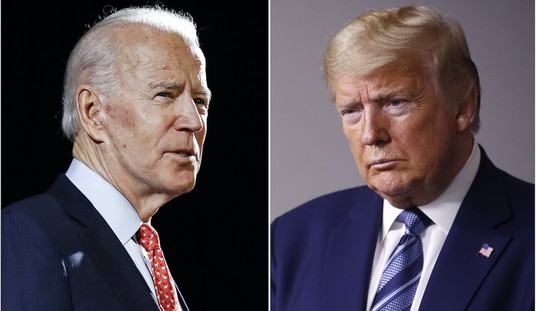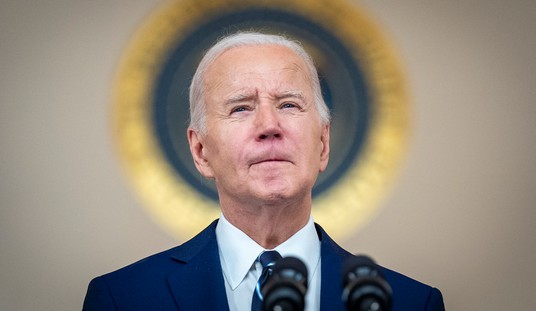If this is true, talk about backfire. Former Obama campaign adviser David Shor argues yes. Democrats thought that slogan would strengthen ethnocentric voting choices. Instead, it forced non-white voters to choose ideology over demographics, especially among Hispanics — and rather than pull voters to Joe Biden by pandering, they drove them to Donald Trump instead:
But white voters are polarized on ideology, while nonwhite voters haven’t been. Something like 80 percent of white conservatives vote for Republicans. But historically, Democrats have won nonwhite conservatives, often by very large margins. What happened in 2020 is that nonwhite conservatives voted for Republicans at higher rates; they started voting more like white conservatives.
And so this leads to a question of why. Why did nonwhite voters start sorting more by ideology? And that’s a hard thing to know. But my organization, and our partner organizations, have done extensive post-election surveys of 2020 voters. And we looked specifically at those voters who switched from supporting Hillary Clinton in 2016 to Donald Trump in 2020 to see whether anything distinguishes this subgroup in terms of their policy opinions. What we found is that Clinton voters with conservative views on crime, policing, and public safety were far more likely to switch to Trump than voters with less conservative views on those issues. And having conservative views on those issues was more predictive of switching from Clinton to Trump than having conservative views on any other issue-set was.
This lines up pretty well with trends we saw during the campaign. In the summer, following the emergence of “defund the police” as a nationally salient issue, support for Biden among Hispanic voters declined. So I think you can tell this microstory: We raised the salience of an ideologically charged issue that millions of nonwhite voters disagreed with us on. And then, as a result, these conservative Hispanic voters who’d been voting for us despite their ideological inclinations started voting more like conservative whites.
What a shock. By the way, who were the people most likely to be impacted by that crime spike and the lack of police response? Anyone? Anyone? Bueller? Bueller?
Better question, if we can assume Shor’s right, and it certainly appears that way: why wouldn’t demands to dismantle urban police departments alienate city voters from Democrats? Party officials, especially on the progressive wing, embraced calls to “defund the police” after George Floyd’s death in Minneapolis police custody, while riots burned in cities across the US. Crime rates skyrocketed as a result of law enforcement’s retreat from effective policing strategies, making law and order a compelling issue.
This is the difference between sloganeering and effective politicking. The former involves assumptions by elites about voters based on one’s own prejudices and agendas, and the latter involves engaging with voters to see what their agendas might be. Even in Minneapolis, anger over policing didn’t come from some utopian idea about life without law enforcement, but instead having better accountability in policing and more effective use of resources.
Everyone assumed Trump’s “law and order” messaging was solely aimed at suburban whites. That certainly was a component of it, but Trump also calculated it for the people who were stuck in the aftermath of “defund the police” and resented it — and it turned out there were plenty of non-white voters among them.
Perhaps Republicans can learn a lesson from this. Right now might be a great time to organize the party’s agenda around school choice as well as effective law enforcement, both issues that speak directly to the daily lives of parents in cities and suburbs. There may be more conservatives to draw out of the non-white demos that Shor points out … if Republicans do the hard work of politicking rather than sloganeering.
Update: I was entirely remiss in not tipping my hat to Nate Silver, through whom I came across this interview. His point here is even more succinct:
The broader implication in here is that Democrats should take it seriously when many nonwhite Dems identify themselves as moderate or conservative. And it's usually conservative on social/cultural issues more than on economics. If Dems lose those voters, they're kind of screwed.
— Nate Silver (@NateSilver538) March 3, 2021
It would require Republicans organizing effectively to swing them to their candidates, of course. Don’t assume anything on that score.
Update: An astute reader passes this along from Politico, which warned two months ago that progressives were losing Hispanic voters:
“Most Latinos identify first as working-class Americans, and Trump spoke to that,” said Josh Zaragoza, a top Democratic data specialist in Arizona, adding that Hispanic men in particular “are very entrepreneurial. Their economic language is more aligned with the way Republicans speak: pulling yourself up by your bootstraps, owning your own business.”
And then there’s the way the left spoke — or were framed by Trump’s campaign for speaking. Calls to “defund the police,” a boycott of Goya Foods and the threat of socialism turned off some Latino voters. And even using the term Latinx to describe Latinos in a way that’s gender-neutral only served to puzzle many Hispanics.
“About 97 percent of Latinos don’t say ‘Latinx,’” Zaragoza said, referring to a Pew Research poll on the subject. “We’re building strategies around young progressive activists and organizations — and they’re necessary and we appreciate what they do.
“But a lot of Latino voters are focused on ‘I’m a hardworking American trying to feed my family or build a business,’ and a lot of this language doesn’t speak to them.”
It’s not the first time we’ve noted the cultural imposition of “Latinx.” It’s not the only cultural imposition issue either, clearly.








Join the conversation as a VIP Member